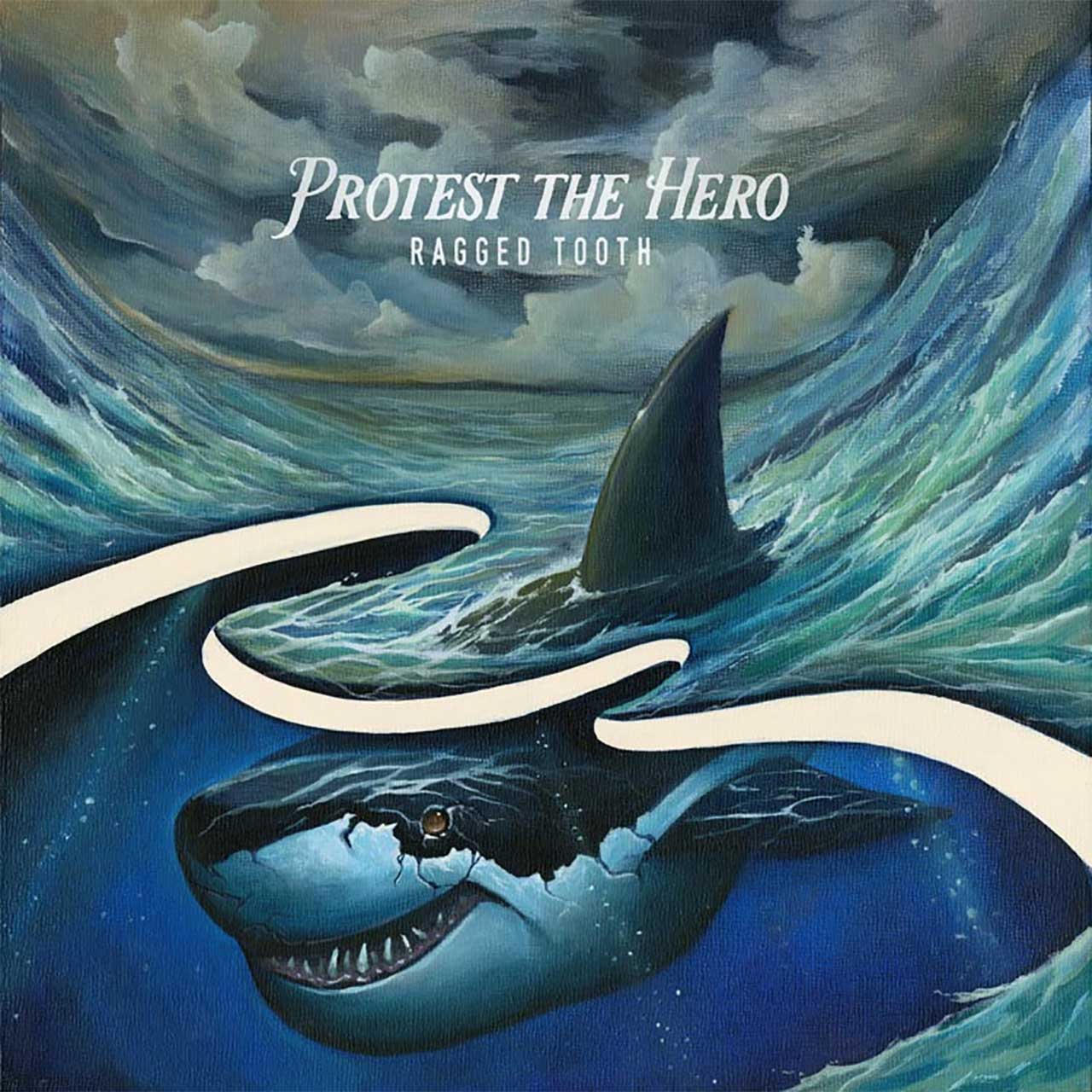Protest The Hero are musical nomads. In an industry often rife with tension between the artists that make the music, the labels that release it and those who stream and sell it, this Canadian quintet are standing on their own. By breaking free from this trinity they’ve shown that, not only can a band survive, but they can thrive too.
Crowdfunding their 2013 record Volition on Indiegogo, the band were able to rely solely on the strength of their fanbase to move forwards. The scale of the campaign’s success, which raised over $340,000, was both uncanny and unexpected. 8,361 backers pledged their support through different packages ranging from a $10 album download to $5,000 to guest on the album itself. They hit 273% of their goal and, as guitarist Tim Millar explains, made a serious statement to the music industry in the process.
“I think it was a real eye-opener for other bands like us and it made label people do a double take and see that crowdfunding is a viable, alternative option to the traditional format,” he tells us. “Before we launched the campaign we were unsure what would happen, but it gave us a chance to have direct contact with the core of our fan base which is more valuable than the revenue.”
Buoyed by the success of the campaign, they’re now striving for further independence outside of the remit of what Millar describes as an “unfair business.” Pacific Myth, their latest opus, is available exclusively as a subscription based service through Bandcamp, with one song a month being released for the next six months. Alongside fresh new tracks, teasingly yet tantalisingly fed to their subscribers, is an instrumental version of each track, a dedicated piece of artwork, liner notes, lyrics and sheet music.
While on the surface that may sound like a drawn out way of bringing new music to fans, in a world as fast-paced as this, it keeps the band very much in your periphery.
“When you do a full-length there’s a lot of hype around it for a while. You release a lot of stock at once then people move on a few months later,” Millar states in his quilted Canadian accent. “So we thought this idea was great because it gets new music out to our fans quicker. Social media is so important these days too, so every month we have new and exciting things to post about. It draws attention to the band.”
With two songs fully finished – Ragged Tooth the first to be released on Pacific Myth’s October 15 launch – two songs soon to be entering the recording phase, and two songs yet to be penned, the music of the EP is as fresh as it can be. Today’s glutinous society may want to devour new media instantaneously, but this steady flow of releases allows us to truly admire the nuanced beauty of each track and its artwork.

This is something Rise Above Records founder Lee Dorrian has branded a “clever” move: “I like music to resonate and sink in with me so this is definitely a way of doing that because you’re not bombarded with too much at once. Every fortnight might be a bit more palatable but I’m all for bands with creative ideas like that. It keeps it interesting and it keeps the anticipation high; if the song is killer and you love it you’ve gotta wait another month for the next one.
“One thing that’s always bothered me about digital projects like this is how it’s represented, which I guess I’m responsible for too. So much effort goes into the physical package that when it comes to digital you just get the front cover.”
Millar has a solution for that concern, helping colour an otherwise greyscale format in that respect. “Artwork is lost in the digital age. It’s just a little icon on a device. So we’re hiring different artists for each cover which also gives them a chance to shine.”
The exclusivity of the project meanwhile, is arguably its most interesting aesthetic. When a band releases new music nowadays we’re spoilt for choice of how to consume it, be it through Spotify, YouTube, iTunes, a record store or wherever else. The only way to wrap your ears around Pacific Myth however, is by subscribing.
The relationship between Spotify and bands is becoming more fractious, as highlighted by Thom Yorke’s recent stance against the streaming service, claiming that “artists you discover on Spotify will not get paid. Meanwhile shareholders will be rolling in it”. Spotify retaliated by publicly revealing that artists earn around $0.007 per stream – 14,300 plays therefore valuing $1 – although data journalist David McCandless’ calculations suggests that figure is a measly $0.001128. So, by streamlining where you can access this new music is both simpler and more beneficial for the artists who pour their blood, sweat and tears into its production.
The nature of the project relies heavily on self-funding too, with Millar admitting the the band had to “cut some corners and record in people’s basements”. But there are no middle men as a result. It’s just the band and their fans. If you do subscribe, Tim Millar personally emails you the files.
It also keeps things focussed. This is quantity over quality.

“Albums have been so confused since CDs became popular. Bands have been cramming as much time onto each CD as they could because they had more than vinyl,” says Dorrian, which is something Millar echoes:
“The fact that you can pick and choose which tracks from an album you want goes back to a time when bands released singles, which kept fans engaged and the industry was booming.”
But of course, we live in a world of contradictions. While the industry’s rapidly increasing pace may be leaning more toward singular but more regular releases to help turn your attention away from another ‘hilarious’ cat video, we also want vinyl. 1.3 million vinyl records were sold in the UK alone last year, the highest number in 20 years. And so the band isn’t ignoring that demand.
“Subscribing is kinda like getting the music early, but this is the next release by Protest The Hero so eventually it won’t just be available on Bandcamp and it will be out on vinyl too. I just see this as another option. I know a lot of people may think we’re trying to do something to get attention and it’s just a gimmick, and I’d be lying if I didn’t say there wasn’t a part of that to it. We wanna try new things, but we’re only doing it because we truly believe there’s another way.”
Yet, as much as this innovative release method may shake the proverbial tree, this is more a project of individualism than the birth of a new trend tradition. In six months’ time our interest levels in Protest The Hero may still be as stronger than ever, or people could have grown lethargic about waiting and have moved on to something else. But the imagination and innovation at least has to be applauded.

